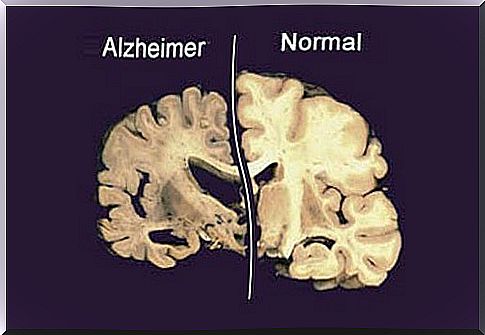Alzheimer’s Is Linked To Lack Of Sleep
1 in 6 women and 1 in 11 men are at risk of suffering one day from this brain disease. Lack of restful sleep causes neurons to actively degenerate and fail to restructure or regenerate even with subsequent rest.

If you do not get enough sleep to enjoy well-being and a healthy life, you can probably have a variety of conditions as a result of the lack of sleep. The main one being Alzheimer’s.
Remember that the recommended hours of sleep for good rest and good productivity are 8 per day.
Sleep is an essential process for the proper functioning of our brain, since when the body relaxes and consolidates sleep and rest, the brain begins its work of learning new knowledge acquired during the day.
It also allows the body to rest and recharge energy to start a new day with optimal development of each of the required activities, whether physical or mental.
According to some neurologists, when we do not sleep enough time, the production of proteins that affect the connection between neurons increases, which prevents the retention of mental activities that allow the memory of facts.
Illnesses due to lack of sleep
Alzheimer’s is a disease that mainly affects the elderly because, over time, adults decrease their sleep time. Accelerating the production of senile plaques, which require more good cells, thus preventing the correct sending of information between neurons.
Poor sleep habits can seriously affect your brain health. Causing long-term damage, such as the onset of Alzheimer’s or suffering from severe dementia very early on.
Lack of balanced sleep generates active degeneration of neurons. Recovering by resting one or two days a week by sleeping more than usual doesn’t work. Indeed, the activation of the production of brain damage occurs every time we do not get enough sleep.
It does not restructure and also does not regenerate with later sleep. You have to sleep for a set amount of sleep each day.

On the other hand, lack of sleep is not the only cause. Intermittent sleep also produces serious brain problems, as unstable sleep causes about 25% of neurons to be lost.
This loss of neurons is not only reflected in Alzheimer’s disease (which will appear in old age), but also in everyday life, during which the learning processes will be difficult.
During sleep, the brain performs its function of eliminating toxins, allowing the elimination of proteins that accelerate the growth of senile plaques that increase memory loss.
Figures on the disease
The risk of developing Alzheimer’s in older women is greater than the risk of developing breast cancer.
The development of this degenerative disease, in both men and women, presents the following figures. One in 6 women is likely to contract this degenerative disease while one in 11 men is at risk of developing it.
Alzheimer’s is a high risk disease, since no effective treatment has been found so far. And that there is no way to cure or reduce the damage caused.
Fortunately, there are many ways to improve your health through consolidation and good balance during sleep time, a time that should be quiet and lasting. It is therefore preferable to enjoy a deep sleep and to eliminate intermittences to avoid diseases linked to lack of sleep.
Light and sleep
One of the things that helps in getting good sleep and adequate rest is to take advantage of the light during the day and to go in complete darkness when sleeping.
It is necessary to see light and darkness in order to be able to adapt your body through a biological clock which is responsible for setting the rhythm of the day and requiring activity and rest when they are necessary.
Even a tiny bit of light can prevent perfect rest and a good ability to sleep.

A big problem for the correct consolidation of sleep are the night and day work schedules, because the body clock and therefore sleep suffer from constant alterations that compromise health and well-being.
Avoid watching television or using the computer at night, as these two technological devices expose you to a light similar to that of the day, and therefore impair the development of your sleep, its quality and its quantity.
Other tips for sleep
You can take a hot shower 30 minutes before going to bed, it will help you relax and get ready for a good sleep.
A final recommendation following the lack of sleep: it is essential to move away from the bed or the place where you sleep any type of electronic device. Because of the effects of light, noise or others that they have on health.
As you know, your brain health is crucially dependent on the quality and amount of sleep you get every day. Adjust your schedules and your room in order to have quality sleep that guarantees your mental and physical well-being.









